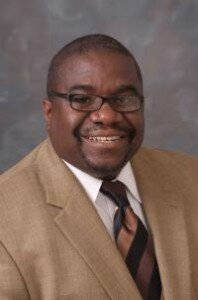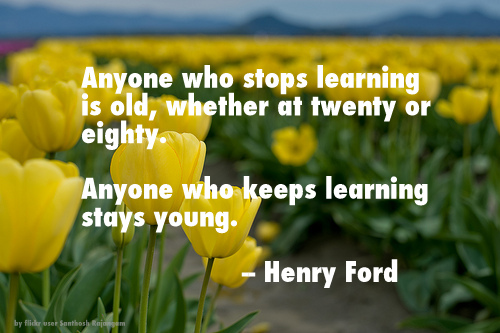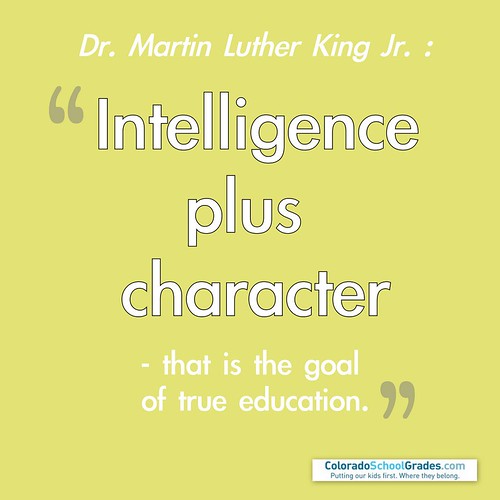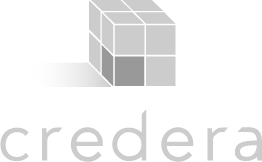
Monthly Archives: January 2014
Guest Post: Key Partnerships Make DPS Stronger
Executive Director, Denver Scholarship Foundation
Denver Public Schools (DPS) Superintendent Tom Boasberg announced Jan. 23 that DPS graduation rates have risen by 23 percent over the last six years. I’m not surprised to see this continual gain in graduation rates. DPS is now the fastest-growing urban school district in the nation because the secret is out. The measures DPS has taken to improve education and college readiness for its students are working.
One of DPS’s strengths is its community. DPS relies, in part, on community partnerships to enhance opportunity for students with additional resources and tools designed to keep students on a path to graduation and to college.
For many DPS students the path to college seems impossible. But, DPS has a key partnership with the Denver Scholarship Foundation (DSF) that provides high school students with one-on-one support to help them achieve their college goals. This partnership is highlighted by DSF’s innovative college access program that supports DPS students as they prepare for and enroll in college.
DSF College Advisors, who are experts in college application and financial processes, serve as valuable resources and mentors for students. They work right inside the high schools, operating Future Centers at 16 different DPS high schools.
DSF College Advisors help students research and define their college and career plans. This includes help finding scholarships, applying for financial aid, and refining their college search. This partnership is part of what makes DPS great. DPS realizes that it takes a community to help students find success.
Since DSF was founded, college enrollment among DPS graduates has increased by 30 percent. Still, there are too many students who do not know or believe in their own ability to learn and contribute to our community. DSF and DPS are working together to create an environment where these beliefs are defeated – an environment where every student is expected to do well in school, go on to college and become a successful, contributing member of our community.
There is still a lot of work that needs to be done. But, DPS has a distinct advantage because of its partnership with DSF. Recently, Gov. Hickenlooper announced a statewide college completion initiative – Colorado Challenge – that aims to tackle college enrollment and completion. DSF is a proud partner in this effort because of our successful track record providing our students with the support they need to successful graduate from college.
Students who enroll in DPS should know that they are joining a community with great forward momentum. Graduation rates are increasing and college enrollment is up. What’s more, DPS graduates have exclusive access to one of the state’s best college completion resources – the Denver Scholarship Foundation.
Nate Easley was appointed as DSF’s executive director on March 1 2013. Prior to his appointment, Easley served as Deputy Director of DSF since 2008, overseeing dramatic growth in the organization’s three-part program to help students from Denver Public Schools succeed in college.
Toolkit: Questions to Ask Your Child’s Teacher at a Parent Teacher Conference – Part III
by Cortney Durista Lockhart
 Today concludes our series of posts by teacher Cortney Durista Lockhart on questions a parent should ask at that parent-teacher conference. Click here for part one and part two.
Today concludes our series of posts by teacher Cortney Durista Lockhart on questions a parent should ask at that parent-teacher conference. Click here for part one and part two.
Part 3
1. What can I as a parent do to best support you and my child?
Some teachers love having parent volunteers every single day, while others may need your support outside the classroom. Asking what you can do to best support the teacher will let him or her know that you respect his or her role as a professional and establish right away that you are willing to help in whatever way you can. If you’re worried that asking this question means that you’ll have to volunteer every day in your child’s classroom, don’t – donating extra school supplies, translating parent newsletters, or reading with your child every night or morning (to name a few things) are all wonderful ways to support your child and his or her teacher.
2. How often do you update/communicate grades?
Many schools have very clear expectations around updating grades, but some do not. Asking how often the teacher will be communicating about grades holds both you and the teacher accountable for staying on top of grading. You could also ask about grading scales and late work and extra credit policies during this conversation.
3. What is your classroom management system like?
This might be a system that is consistent school wide or it might change depending on the classroom, but make sure that you and your child fully understand the expectations and consequences for behavior. A good classroom management will have clear expectations and consequences that are student friendly and reasonable – if a teacher is assigning 300 lines for missing a homework assignment, engage him or her in a conversation about why he or she thinks that this is an appropriate consequence. There might not be a perfect ending to this conversation, but being open about behavior expectations in the classroom early on could help prevent issues later in the year.
4. Are parents welcome in your classroom as volunteers? As visitors?
We all want to help with our children’s learning, but if you haven’t cracked open an Algebra textbook in twenty years, you might not want to offer your services as a math tutor for your student’s teacher. Instead, ask if the teacher could use help organizing papers or providing resources like pencils, paper, or even snacks for students. Also ask if you can stop by just to see how your child is doing from time to time (and be sure to double check on your school’s visitor policies and procedures).
Cortney Duritsa Lockhart has always been passionate about equitable education and is currently a 7th grade math and civics teacher at West Generation Academy. She has lived all over Colorado and now lives in Denver with her husband and cat.
Toolkit: Questions to Ask Your Child’s Teacher at a Parent Teacher Conference – Part II
by Cortney Durista Lockhart
This week, teacher Cortney Durista Lockhart shares her tips for what questions a parent should ask at that parent-teacher conference. Click here for part one, and stay tuned for more ideas tomorrow!
Part 2
1. What can I do to be supporting my student in his or her growth in your class?
Oftentimes, taking a simple step such as reading every night with your child or asking him or her multiplication and division questions while you’re doing the dishes can build huge growth for your child. Researching colleges or summer programs with your child might be a way that you can help as well. Teachers sometimes don’t know how to ask parents to help with these little things, so take the initiative and ask!
2. What are your goals for my student this year?
Every teacher has goals for his or her students, just as every parent has a long list of goals for his or her child. Ask what your child should be able to do and know by the end of year and then engage in a conversation about what this will look like. Your child’s teacher should be able to clearly explain these goals and the steps along the way, maybe using a syllabus or an organizer to help your child stay on track.
3. How is learning assessed (tests, projects, presentations, etc.)?
There’s no way around it – we live in a test and data driven world. Asking teachers how they assess student learning can open up some important conversations that won’t happen otherwise. What if your child has severe test anxiety? Does his or her teacher take a variety of different factors into consideration when grading, or is everything determined by just one test every unit? Be sure that you know how the teacher measures learning so that you can be supportive for your student.
4. What motivates you to teach?
As a teacher, this is one of the best questions that I have ever been asked by a parent. Though it might catch your child’s teacher off-guard, it is a great way to get to know the teacher more personally. This will give you a chance to see if your values and your child’s learning style will be best served by this teacher. The best teachers are those that push us in our thinking, so be open to new perspectives and ideas!
Cortney Duritsa Lockhart has always been passionate about equitable education and is currently a 7th grade math and civics teacher at West Generation Academy. She has lived all over Colorado and now lives in Denver with her husband and cat.
Toolkit: Questions to Ask Your Child’s Teacher at a Parent Teacher Conference
by Cortney Durista Lockhart
 A parent-teacher conference is an excellent opportunity to get to know your child’s classroom and their teacher. It’s one way to uncover some simple ways to get more involved in your student’s education and improve their experience at school. This week, over three days, teacher Cortney Durista Lockhart shares her tips for what questions a parent should ask at that parent-teacher conference.
A parent-teacher conference is an excellent opportunity to get to know your child’s classroom and their teacher. It’s one way to uncover some simple ways to get more involved in your student’s education and improve their experience at school. This week, over three days, teacher Cortney Durista Lockhart shares her tips for what questions a parent should ask at that parent-teacher conference.
Part 1
1. What are your rules on technology in the classroom?
Some teachers might have to follow school wide policies around technology, such as no cell phones or iPods in any classrooms. However, some teachers may be integrating text message polls and surveys into their everyday instruction or giving homework on internet-ready computers so that students can use the technology that they so love! Talking to your student’s teacher about his or her technology preferences will help you message to your child how he or she should be using technology while at school.
2. What are your expectations around homework?
Teachers have many different stances on giving homework, and it’s important to know where your child’s teacher stands early in the year. Ask about how much homework to expect weekly, when tests and quizzes will be given, and what your role as a parent is in making sure that the homework is completed. Homework should not be busywork but instead a way for your child to practice or build upon what he or she learned in the classroom that day.
3. What are the strengths and challenges that you have observed in my student’s performance so far?
Sometimes, a teacher will notice things about your child’s learning style that you might not – maybe Alexia works really well in groups but struggles to work alone, or Martin knows his fractions but cannot understand decimals. Asking about strengths and challenges might give you more insight into what to work on at home with your child. Additionally, it lets you as the parent know that your student’s teacher really knows who your child is and how he or she learns best.
4. How do you prefer to communicate with parents? Students?
Teachers and parents are all busy people, so asking about how best to communicate will help both you and your student’s teacher feel supported. Maybe one teacher loves to send text messages or emails, but another prefers phone conversations. Ask if teachers are available to answer homework questions after normal school hours via text or call (as students move into higher level classes like Calculus or Physics, this can be extremely helpful). Be sure to also talk about how often you should expect to be hearing from your student’s teacher.
Cortney Duritsa Lockhart has always been passionate about equitable education and is currently a 7th grade math and civics teacher at West Generation Academy. She has lived all over Colorado and now lives in Denver with her husband and cat.
A-School Profile: University Park Elementary School
by Alisha Janes
 Lisa Lynch’s first-grade classroom in University Park Elementary is timeless in the sense that many Americans would recognize it as similar to their own first grade classroom. The walls are covered in student projects, photos, and educational posters and the shelves are full of familiar books and activities. The desks each have tidy name tags carefully taped down across the top.
Lisa Lynch’s first-grade classroom in University Park Elementary is timeless in the sense that many Americans would recognize it as similar to their own first grade classroom. The walls are covered in student projects, photos, and educational posters and the shelves are full of familiar books and activities. The desks each have tidy name tags carefully taped down across the top.
The lesson I observed in Lynch’s first grade classroom was a perfect example of a fairly traditional classroom lesson. She read a book aloud while the students sat near her feet on a carpet in the front of the classroom. As she read, the students helped by reading along with the predictable pattern of the story. The first graders also answered questions that related how reading this book could help them with a forthcoming writing assignment. After about 20 minutes, the students returned to their desks and completed a follow-up activity on their own. On paper, this lesson may seem commonplace, but in person, Lynch’s clearly has extraordinary teaching talent.
Prior to the start of the lesson, Lynch took a few moments to let students tell her about their weekends. She asked pointed questions that illustrated just how well she knew each student personally, checking in on a sick grandparent, and following up with students who had attended a play over the weekend. The students in the room were actively engaged in the lesson, but like typical first graders, needed to be reminded of the rules occasionally. Lynch’s way of dealing with this was so effective that you might not have noticed her corrections at all.
She also made noticeable efforts to continue to expand the students’ independence, telling one student, “You are responsible; you can do it.” The students were all actively engaged in the lesson and the objective of the lesson and how it related to skills the students were developing over time was obvious. These small yet important touches are likely what caused Lynch to be nominated and recognized as a distinguished teacher in 2013 by Denver Teachers’ Awards.
The timeless feel of Lynch’s classroom parallels the school’s teaching style; University Park Elementary’s instructional model can be summarized as well-executed traditional education. While the school has embraced new technologies and opportunities, the basic tenets of education at University Park remain relatively unchanged.
Though routines around the school may seem relatively straight forward, the academic results they achieve are not. University Park was ranked 116th out of 1009 elementary schools in 2013 by Colorado School Grades.
The school’s unique qualities include:
- An incredibly diverse student population,
- A partnership with the University of Denver, and
- A wellness program that earned the school recognition as the healthiest school in Denver.
30-35% of the students at University Park have open-enrolled into the school, making University Park an available option to parents who are looking for an elementary school.
All in all, University Park Elementary and teacher Lisa Lynch are proving that more-traditional styles of education can be not only dynamic and innovative but also highly effective.
Alisha Janes is a fellow at Colorado Succeeds and is currently pursuing a Masters of Public Administration at the University of Colorado at Denver. Alisha’s previous experience include: coaching new teachers, teaching intervention lessons, and three years of teaching a Bilingual 5th grade class in Houston, TX.
Guest Post: 9News’ Stuff for Students & 9Teachers Who Care
Colorado School Grades is a coalition of 18 partner groups. Our guest posts feature these organizations and others, who offer tips and advice for parents who want to choose or improve a school.
By Lynne Valencia, Vice President of Community Relations, 9News
Above, a 9News story on January’s 9Teachers Who Care winner.
Television stations have long supported the community since the first signals hit the airwaves. 9News has led this market in community outreach through programming, campaigns, editorial coverage, partnerships and sponsorship. We recognized the influence of our broadcast and digital platforms and we understand the obligation towards improving the community we operate in. We believe that a strong community not only benefits our business, but our employees and others who live here.
12 years ago, a group of us at the station met with representatives from the educational community. We wanted to hear from superintendents, teachers, administrators and parents on how we, as a television station, could support education and students. We heard two things that we could respond to; students often do not have the school supplies required to fully participate in the classroom and teachers need more recognition for the work they do with their students. As a result of this meeting, we created two programs; Stuff for Students and 9Teachers Who Care.
Stuff for Students is a school supply drive held every August. Our goal is to collect and provide supplies to schools for use in the classroom. Teachers and administrators told us that low-income students often arrive at school without the needed supplies. If they get them, they are often left at home, causing a strain in the classroom. It was suggested that the supplies we collect be given to where they were needed most – the classroom. Supplies collected from our viewers, through our partners and online are divided and distributed to schools based on the number of kids on their free or reduced lunch program. We give the supplies to the school districts. Districts pass out supplies to schools and schools decide which classrooms need the supplies most. We support 17 school districts across the Front Range.
Our 9Teachers Who Care recognizes nine teachers a year who are doing unique things in their classrooms that push academic achievement and gets students to think broadly about their community. We seek nominations from students, parents, and anyone who knows an amazing teacher. We have honored elementary, middle and high school teachers who teach music, math, shop, history and a variety of curriculum. They host afterschool clubs, arrange field trips, utilize technology, and show up everyday willing to give 100% of themselves to enriching the lives of their students. They are creative, resourceful and caring. We accept nominations year round. Winner’s stories are broadcast on 9News, KTVD and posted on 9News.com. At the end of the school year, 9Teacher Who Care winners are invited to an award ceremony where their family and friends help them celebrate. We want strong nominations and encourage those who care about education to help us recognize the great teachers in our state. Please nominate a teacher today. Nominations can be downloaded from our website: http://www.9news.com/life/community/whocare/teachers/default.aspx
In addition to these two programs our editorial coverage of issues impacting education is another way that we are able to inform our community and to encourage engagement. We’ve seen the power of engagement make real change. We are committed to making lives better because we live, work and operate here.
Lynne Valencia joined KUSA-TV, 9NEWS as Director of Community Relations in December 1999. She was promoted to Vice President Community Relations in May, 2007.
Henry Ford – Keep Learning
Choose a School: What to Look For in Programs for English-Language Learners
by Alisha Janes
With the rising number of English-language learners in Colorado, many parents searching for quality schools need to consider the quality of language instruction. Yet, the wide variety of programs and approaches make comparing schools for English-language learners a complex task. Here are a few key considerations for parents, including the type of program, the types of supports that are provided, how progress is measured, and the school environment.
Academic development:
The most important factor to consider when comparing programs for language learners is the need for students to continue their development in all academic areas. Learning a second language is a natural process that takes time. While it may vary across learners, it can take too long for students to ignore other subjects while they try to learn English. How this is addressed depends on the school’s program. In some, this access to other content material is done through instruction in a learner’s native language; in other programs, teachers provide language support to help learners understand lessons in English. Yet other programs take students out of their traditional classroom to provide direct instruction in English that should relate to what students are learning in their classes. Check out this helpful link that helps explain the differences in programs used for English-language learners.
ELL teacher preparation:
No matter what program model a school uses to help English-language learners, an important question to ask is how teachers have been prepared. Different states require different levels of preparation, and requirements can differ across programs as well. Teachers providing extra support to students in traditional settings should be able to explain how they help students understand the English being used in their lessons. Some possible strategies teachers might list include:
- Using gestures and photos to add extra context to language,
- Incorporating real objects to add meaning,
- Teaching in thematic units to help familiarize students with vocabulary, and
- Allowing students to work in groups or with a partner.
Teachers should also be able to articulate how they focus on key academic vocabulary to help English-language learners.
Measuring progress:
Another important question for parents is how a student’s progress will be measured. Research has shown that students who remain in programs designed for English-language learners for longer periods of time do not perform as well as their peers who exited the program more quickly. Teachers should use short assessments throughout the year that monitor a student’s progress with language learning as well as their progress in other academic subjects. When students are being tested for their understanding of other content like math or social studies, they may require extra assistance or tools to make sure that they understand the questions and directions. The data from these short assessments should be used to provide students with help in areas where they need it most.
Attitudes about language learning:
Finally, a teacher and school’s attitudes regarding language learning is important. Bilingualism should be considered an asset and not a deficit and teachers should take responsibility for a student’s progress both in learning English as well as learning across subject areas. Students should not be punished for using their native language and overall should feel like they are part of a welcoming community that embraces their culture and native-language skills.
Alisha Janes is a fellow at Colorado Succeeds and is currently pursuing a Masters of Public Administration at the University of Colorado at Denver. Alisha’s previous experience include: coaching new teachers, teaching intervention lessons, and three years of teaching a Bilingual 5th grade class in Houston, TX.
 |
| 





